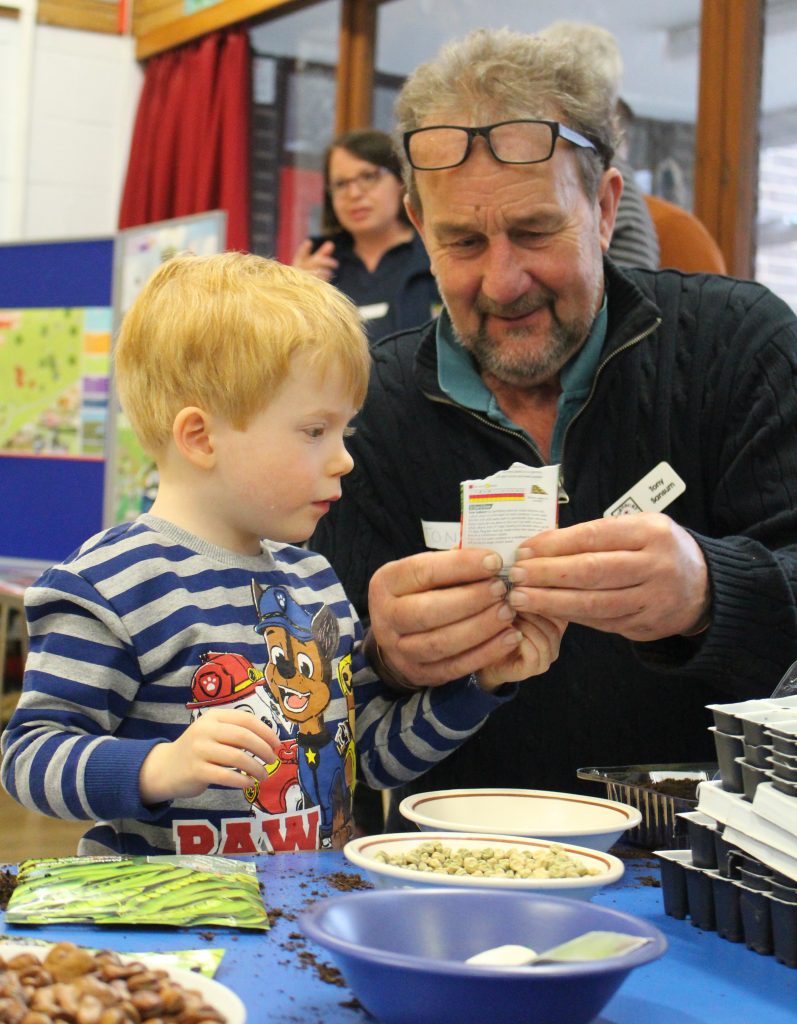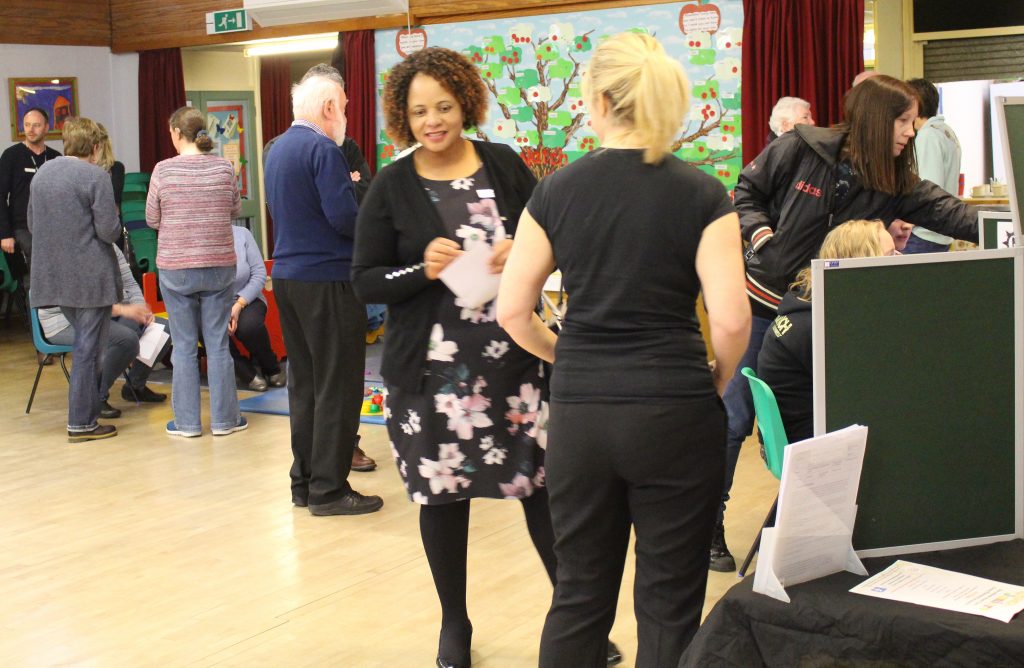
Local plantsman/Britain in Bloom rep Tony planting bean seeds with one of the younger new residents (Source: Lemon Gazelle CIC)
MELA is pleased to invite guest blogger, Sarah Martin from Lemon Gazelle CIC, to share a case study where they found creative ways to build a sense of ‘community’ between existing residents and new residents moving into a new housing development. We need more of this kind of ‘social introduction and welcoming’ thinking as the UK government plans to build millions of new homes in existing neighbourhoods.
“There are no strangers here, only friends you haven’t met” Roald Dahl
What does it take for us to feel welcome and at home in a place? Conversely, what is it that makes us feel uncomfortable, or unwelcome? Are there particular barriers to certain individuals or groups being welcome in a place, and if so, are these rooted in physical, environmental, social, attitudinal or perhaps health issues……or something else?
These are questions that we set out to answer with a Town Welcomes project we supported. The town in question is growing fast, with substantial and controversial housing development, and a new vitality in the town centre which had seen large numbers of vacant units. It is a town where people of all walks of life want to live, being close to major cities, surrounded by countryside and an attractive place to raise children or retire.
So, is this a welcoming town in which to live? This question was posed by the Mayor who set out to find out how it can be as welcoming as possible to everyone, whether they are new residents, have a disability or experience other barriers to being able to fully participate in the life of the town.
We began by speaking to a wide range of local community and support groups, including the Stroke Group, a children’s disability charity, the dementia friendly initiative, schools, U3A and youth workers. Our focus initially was on ageing and disability, and particularly around using the town centre services and facilities. We asked,
· Do you use the town centre?
· Are there any barriers to you accessing the services and facilities of the town?
· Are there ways that the town could feel more welcoming to you?
· Are there places you’d like to celebrate which offer a great welcome?

Our findings revealed some physical issues around access, such as dropped kerbs, parking, signage and toilets where improvements could be made. But what was revealing was that most of the barriers, and opportunities were around attitudes and behaviour; a person with dementia who is given time to count out the coins to pay for shopping, supported and not rushed, feels that they can shop there again. A parent with a child with autism who is supported and not judged in a shop or cafe when a meltdown occurs is far more likely to return. Simple, yet highly effective actions centring around kindness, patience, understanding and lack of judgement are what make people feel welcome, whether they have additional needs or not.
With these findings in mind, an awareness event was set up, inviting all town centre traders, organisations and community groups, to find out more about the barriers and opportunities that exist in welcoming people to the town. We heard from speakers on becoming Dementia Friendly, issues around hidden disabilities and discussed examples of where organisations had thought creatively to become more welcoming.
Further work in this strand has involved specific training on the use of Makaton sign language, clarifying signage and conversations with the Town Council on physical improvements. The second key element to this ongoing project focused on those new to the town, and how we could involve these families and individuals more in the life of the town. We recognised anecdotally that, disturbingly, some residents of the new houses had experienced hostility from established townsfolk. We also recognised that everyone has gifts and talents, hobbies and interests to share and that feeling welcome and secure are important before you’re likely to be prepared to get involved and share these.
“There is no power for change greater than a community finding out what it cares about” – Margaret J Wheatley
A Welcome Afternoon in a nearby primary school was offered for new residents, where local community and voluntary groups set up stalls and family fun activities and provided information on opportunities for volunteering and community fun. We worked hard to promote this event, leafleting every new house, using social media channels, word of mouth and our local press to reach out to people.
The promise of fun, tea and cake worked, and people came to find out about their local area. The project is now looking at leading walks from the new parts of town, showing people how to use the brilliant network of little paths and walks that exists to get around without using a car (car parking being a bone of contention in the town). People are more likely to change their behaviour if they are supported and shown the first time than if they are handed a map and told to walk rather than drive. The Welcomes organisation has become a Community Interest Company, and now has a presence in the local churches, through the Carnival, Christmas lights event and volunteer festival.
We all need to feel welcome, connected and involved in our community, to be able to contribute our gifts and talents. Communicating, breaking down barriers, raising awareness, and demonstrating kindness and a non-judgemental attitude are central to extending genuine welcome to all our neighbours. In this way, we weave, knit and stitch our community together and it is beautiful.
Sarah Martin
Business Development Director, Lemon Gazelle CIC
http://www.lemongazelle.co.uk/
